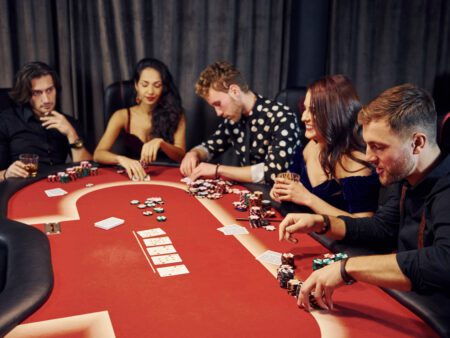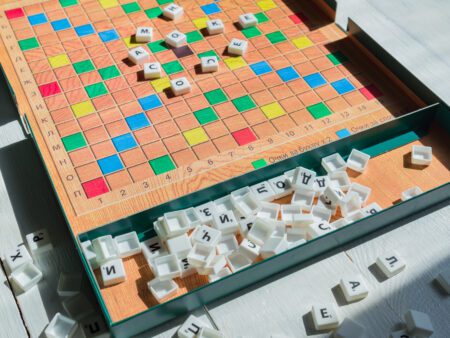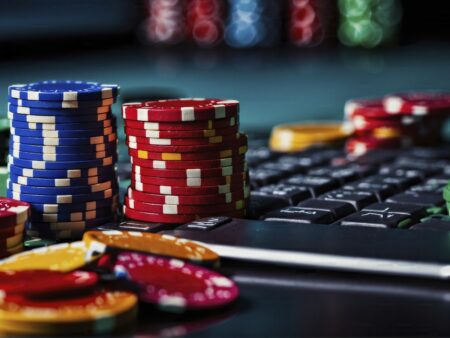Explore the psychology of poker and learn how understanding ‘digital body language’ can give you an edge over your opponents. Dive into this fascinating aspect of the game.
The Psychology of Poker: Understanding Your Opponents
Picture this: You’re seated at a poker table, squaring off against a seasoned veteran. Your palms are sweaty, your heart’s racing, and the stakes have never been higher. Then, out of the blue, you ask yourself: What’s going on inside my opponent’s mind?.
Did you know that a large portion of poker success is based on understanding the psychology of your opponents? Indeed, it’s estimated that psychology accounts for 80% of the game’s strategic depth, while the remaining 20% is pure card understanding.
Decoding ‘Poker Digital Body Language’
Just as in a face-to-face interaction, intrinsic cues can give us an insight into the mindset of our adversaries in an online poker game, or what we might call their ‘digital body language.’ Being able to ‘read’ this language can give you a significant edge. For instance, noticing sudden hesitations or quick calls could signal an opponent’s insecurity, indicating a strong hand or bluff.
This reminds me of the time when I was playing a high-stakes game, and the opponent had been aggressive throughout. Suddenly, he became more reserved, and I realized something was amiss. I trusted my instincts, decided to question his bluff, and it indeed paid off, proving how reading your opponent’s ‘digital body language’ can turn the game in your favor.
Learning this digital body language can certainly improve your game, just like understanding Video Poker Strategies can
Exploring the Core Principles of Poker Psychology
When it comes to unraveling the enigma of poker psychology, several key principles come to mind. Primarily, there’s the principle of variance. The game of poker is peppered with unpredictable events, and understanding this principle allows us to cope with the inevitable highs and lows. It teaches us to remain unswervingly steadfast in our strategies, despite riding the fluctuating tides of luck. One moment you’re on a lucky streak; the next, the tables have turned drastically. It feels a bit like riding a rollercoaster, but seasoned players know that this is just part of the game’s core.
Another noteworthy principle is emotional control. Our greatest wins and losses often stir the most profound emotions. Remember that high-stakes game I told you about earlier? The thrill of calling my opponent’s bluff was an adrenaline rush that’s hard to forget. However, it’s vital to remember that heightened emotions can cloud our judgment. Being in control of your emotions – not allowing fear, excitement, or disappointment affect your decisions – is a crucial part of poker psychology.
Finding the Right Balance
Much like we balance the different flavors in a dish, poker requires finding the right blend of aggressiveness and passivity, along with the wisdom to know when to use each. Strategies are often far from one-size-fits-all and we have to make constant adjustments based on our opponents’ behavior.
Mastering Your Own Mind
Oftentimes, our own minds can be our fiercest adversaries at the poker table. We may trick ourselves into making decisions based on assumed patterns that aren’t really there, or bow to peer pressure and make unwise betting choices. However, within poker psychology lies the power to harness control over our own minds. It asks us to introspect, to question our behavioral patterns and our biases. And when we do take on this introspective journey, we often emerge with enriched gameplay.
Remember the game story from earlier? I had to wrestle with my own anxieties and instincts to make the right call. And that’s an ongoing process – not something you master overnight. Just as we learn to read our opponents’ signals, we must also become adept at reading and controlling our own.
Final Thoughts
Poker isn’t just a card game. It’s a game of minds. Of strategies and bluffs, of tells and call-outs. By understanding yourself and your opponents better, you’re not just improving your poker game; you’re also learning valuable skills that can be applied in myriad other facets of life.
So, the next time you find yourself at the poker table, remember: the game’s greatest stratagem lies not in the cards you’re dealt, but in understanding the minds of those around you. Now, are you ready to explore the amazing world of poker psychology and take your game to the next level?










